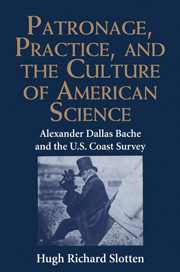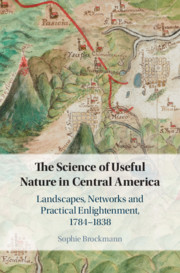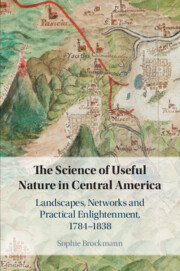Patronage, Practice, and the Culture of American Science
In this text, Dr Slotten explores the institutional and cultural history of science in the United States. The main focus of the book is an analysis of the activities of Alexander Dallas Bache, great grandson of Benjamin Franklin and the acknowledged 'chief' of the American scientific community during the second third of the nineteenth century. Bache became the most important leader of the scientific community through his control of the United States Coast Survey, which he superintended from 1843 until his death in 1867. Under Bache's command the Coast Survey became the central scientific institution in antebellum America. Using richly detailed archival records, Slotten pursues an analysis of Bache and the Coast Survey that illuminates important themes in the history of science in the United States.
- Links cultural history of the period to rise of public science
- Provides case study of relations between science and government at early stage in US history
- Explains importance of US coast survey
Reviews & endorsements
'Hugh Slotten's lucid and perceptive work deepens our understanding of the scientific enterprise in 19th-century America.' Paul Boyer, University of Wisconsin
'All readers will take pleasure in his broad research, lucid narrative, and gift for synthesis.' John W. Servos, Amherst College
'Slotten integrates the history of science into the history of American culture, pointing out the tensions between elitist professionalism and democracy.' Daniel Walker Howe, Oxford University
' … timely and well-written book.' New Scientist
Product details
September 1994Hardback
9780521433952
244 pages
234 × 156 × 14 mm
0.5kg
26 b/w illus.
Available
Table of Contents
- Acknowledgements
- Preface
- 1. Becoming a man of science
- 2. Reforming American science
- 3. Background to reform
- 4. Mobilizing for government science
- 5. Reforming the Coast Survey
- 6. Providing patronage for American science
- 7. Practising government science
- Notes.








